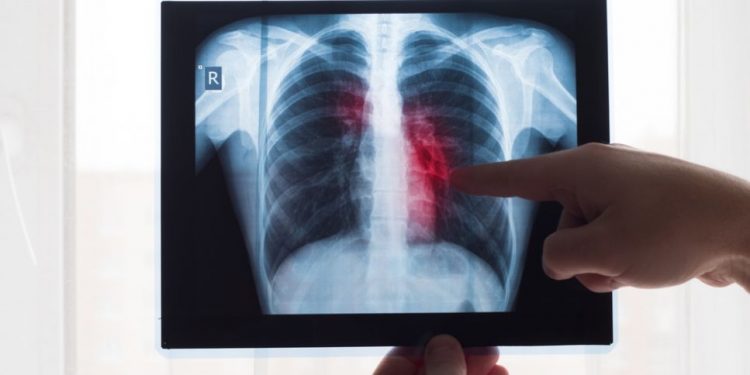Pancoast tumor is a rare cancer that occurs in the top part (apex) of the lung. This cancer can spread to nearby structures, including the ribs and spine. Pancoast tumors are often difficult to diagnose. Because the symptoms are similar to musculoskeletal disorders, people with these tumors sometimes get misdiagnosed and do not receive proper treatment.
Symptoms of a Pancoast tumor may include severe shoulder pain, tingling or numbness in the arm and hand or a feeling that something is stuck in the chest. These symptoms occur because the tumor can grow and invade the ribs or vertebrae, or the lining of the chest wall overlying the ribs and spine, which contains many nerves. In some cases, the tumor can also cause compression of the brachial plexus and other structures, resulting in a syndrome known as Horner’s Syndrome. Horner’s syndrome includes symptoms such as drooping eyelids and decreased pupil size (miosis), which affect one side of the face.
Other symptoms of Pancoast tumors may include a hoarse voice, difficulty breathing, coughing up blood or weight loss. It’s important to see a doctor right away if you have any of these symptoms. The doctor will order imaging tests to look for a pancoast tumor. X-rays and CT scans may show the enlarged area of the lungs, but shadowing can make it hard to spot the tumor. An MRI scan can provide more information about the tumor, including whether it has spread to the ribs and vertebrae or invaded other structures.

A specialized type of MRI called a contrast-enhanced MRI can help find Pancoast tumors and determine how far the cancer has spread. These images help doctors plan the best way to remove the tumor.
Before surgery, patients undergo a combination of chemotherapy and radiation. This can shrink the tumor and stop it from spreading to other parts of the body. Doctors may also remove a portion of the chest wall if it is affected by the tumor. Depending on the patient’s health, other treatments may be used as well.
Patients with Pancoast tumors should seek care at centers that have experience treating this type of tumor. These centers will offer multidisciplinary thoracic oncology, which involves physicians who specialize in thoracic surgery, medical oncology and radiation medicine. This ensures that all aspects of the treatment are carefully planned and coordinated to improve outcomes.









